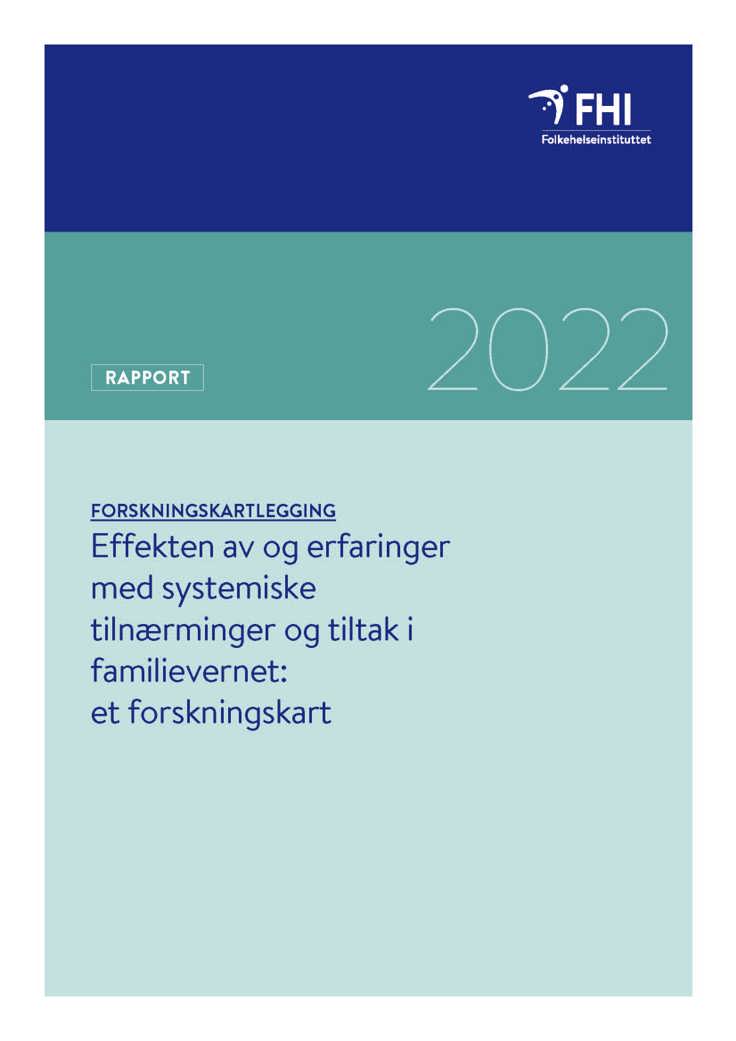The effect and experience of systemic approaches and interventions in the Family Welfare Service: an evidence and gap map
Mapping review
|Published
The goal of this evidence and gap map (EGM) was to map existing research on effects of systemic approaches and interventions that in a Norwegian context would be used in the family welfare service, as well as experiences with such interventions.
Key message
The mandate of the family welfare service is to prevent and remedy relational challenges in the family, to strengthen family relations and to better children’s conditions growing up. The family welfare service is a specialist service with family related challenges as its field, and it aims to offer guidance, mediation and counselling to families that are experiencing challenges, conflicts, or crises.
The goal of this evidence and gap map (EGM) was to map existing research on effects of systemic approaches and interventions that in a Norwegian context would be used in the family welfare service, as well as experiences with such interventions. An EGM is a systematic evidence synthesis product that categorises and displays the available evidence relevant to a broad research question.
We identified in total 35 800 references, of which 43 publications from 34 unique studies met the inclusion criteria and were included in the map. Our main findings are:
- There are relatively few studies on effects and experiences of systemic approaches within the family welfare services.
- Most of the identified studies are on emotion focused therapy or reflecting teams.
- We found few studies from Norway and the Nordic countries.
- We identified 10 different categories of approaches, whereof one is on unspecified or multiple systemic approaches.
There is relatively little research internationally on effects or experiences of systemic approaches within the family welfare service, or similar, and additional research would be valuable.


